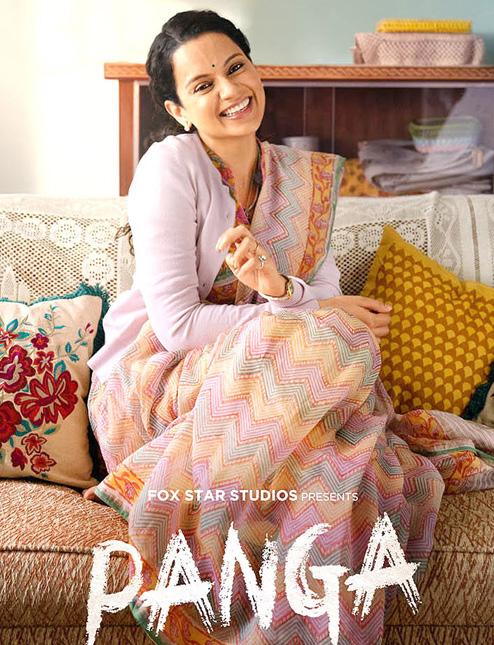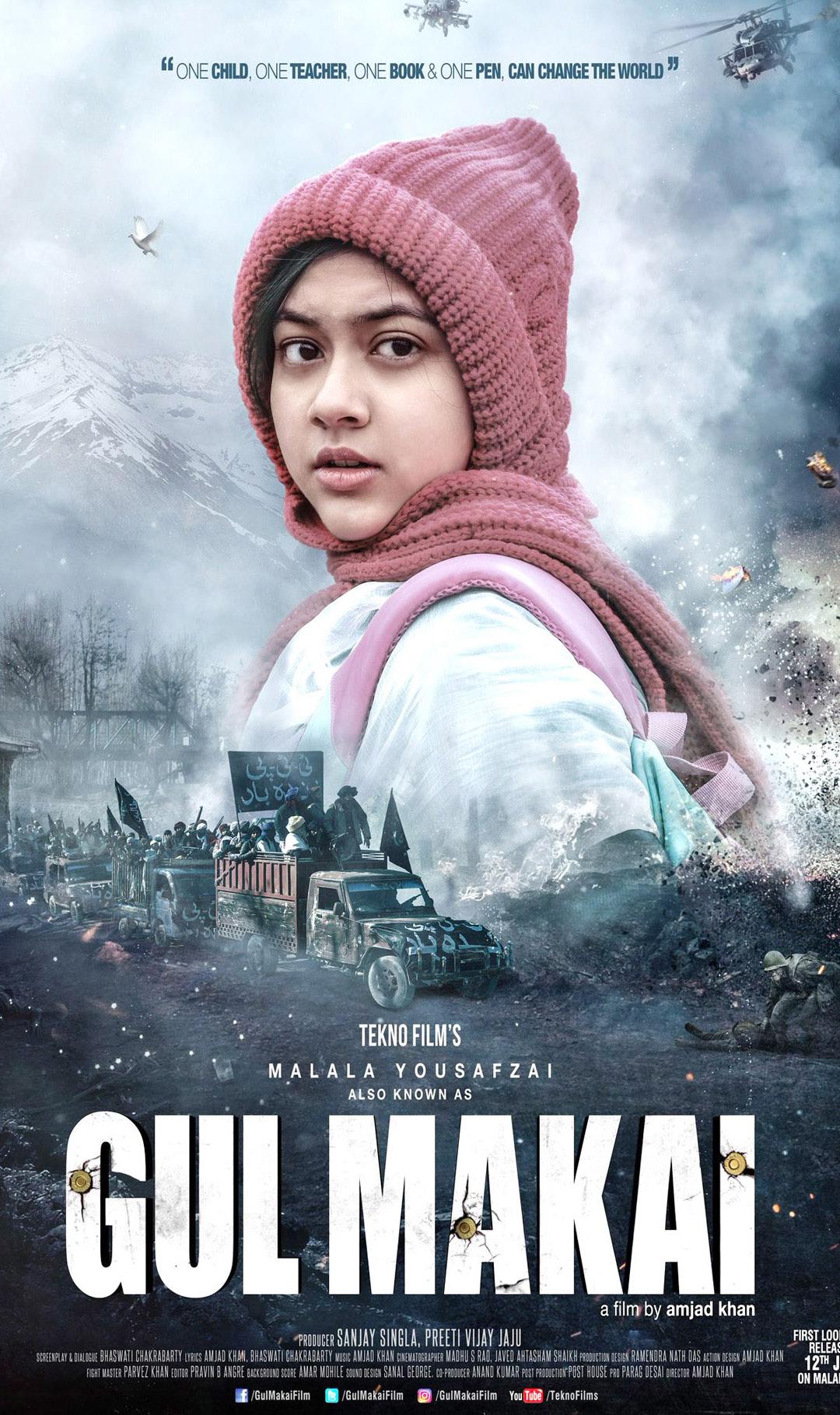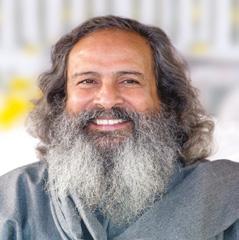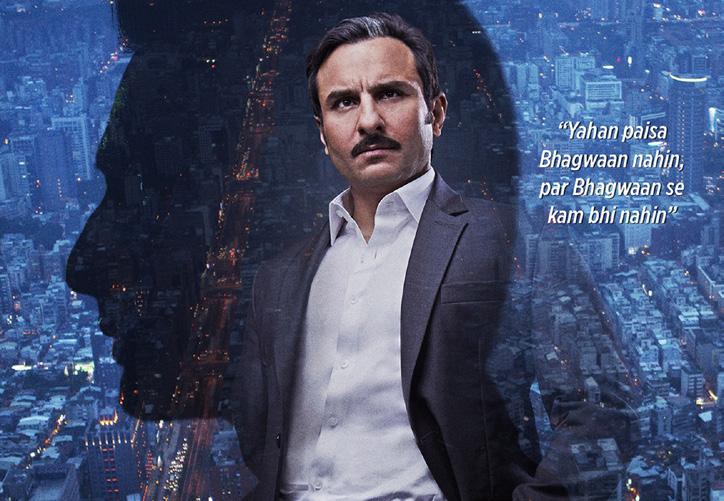
7 minute read
MALALA BIOPIC IS HALF-BAKED FARE
from 2020-02 Melbourne
by Indian Link
Gul Makai
STARRING: Reem Shaikh, Atul Kulkarni, Divya Dutta
DIRECTOR: HE Amjad Khan
Hh
Om Puri's two-scene cameo is a dead giveaway. Given Puri passed away in January 2017, this film must be at least three years old. As the minutes pass, the incessant loud filmmaking that hits you has you wondering if this is some sort of a B-grader straight out of three decades ago.
That's sad, given the subject at hand. The story of Malala Yousafzai deserved a far more professional treatment in terms of character and narrative nuances. Instead, director HE Amjad Khan takes an incredible life story and turns it into a mere excuse to spin out standard commercial cliches.
To be fair, Bhashwati Chakraborty's script does reveal an intention of going beyond merely narrating the life of Malala. It tries gaining a perspective of the milieu in which she grew up, in Pakistan's Swat Valley of the late 2000s when the place was overrun by Taliban terror, and tries utilising that backdrop to lay bare the socio-politics of that era.
Yet, it soon becomes obvious that director Khan seems more interested in using that backdrop to merely create scope for unending violence and melodrama, and little else. A proper character sketch of Malala never really happens over the film's runtime of around 130 minutes, and the life story of the film's titular protagonist remains a shallow side show in her own biopic.
The title Gul Makai (‘flower of corn’) refers to the pen name Malala used to write her fiery columns against fundamentalists.
WHERE ARE THE PANGA MOMENTS?
Panga
STARRING: Kangana Ranaut, Jassi Gill, Richa Chadha, Neena Gupta, Yagna Bhasin
DIRECTOR: Ashwiny Iyer Tiwari
HHH
Panga is the sort of film you easily fall in love with. It has a stellar cast in fine form, is directed by a filmmaker who knows her business of storytelling only too well, and it manages to deliver a topical comment without getting too preachy about it. It is an entertaining film that effortlessly reaches out to the wider audience, and at the same time doesn't lose connect with basic cinematic aesthetics.
In short, Panga ticks all the boxes a good Bollywood mainstream film should. Co-writer and director Ashwiny Iyer Tiwari's third film, it underlines what we had realised after Nil Battey Sannata and Bareilly Ki Barfi - she is one of the most exciting filmmaking brains in newage Bollywood.
Tiwari once again takes to a smalltown milieu to draw her plot and characters. We are introduced to Jaya
Nigam (Kangana Ranaut) of Bhopal, who blissfully balances a doting husband and son with her job as a railway ticket clerk.
Nitesh Tiwari's screenplay establishes Jaya's extraordinary past at the very outset. She was a star kabaddi player who even captained India once, before she gave it all up for marriage and motherhood.
Yet her passion for kabaddi still lurks subconsciously – deep in sleep once, she literally throws her husband (Jassi Gill) off the bed with a barrage of kicks.
When her little boy discovers she gave up her dream to raise him, he suggests innocently that she must return to the sport.
Ashwiny Iyer Tiwari has successfully served up an inspirational package. Jaya's gradual comeback takes shape despite hurdles in the way. Credibly, the narrative imparts its message of women’s empowerment without inyour-face vibes.
What comes across as a downer of sorts is the film's lack of genuine panga moments, despite the realism that sustains its plot and characters. Panga could have done with a few strong conflict points. Essentially, what you get is a feelgood portrait of struggle. Everything and everybody in this film seems so nice at all times. Jaya is nice, so are her husband, kid and mom. Her best friend is nice and so are the coaches, selectors, even rival
Reem Shaikh is cast as Malala, and she never really manages to emerge beyond the half-baked role she is given to play out, in a screenplay that reveals no attempt to look at the pervading Taliban situation from the eyes of its protagonist.

Indeed, the storytelling suffers owing to the narrative's inability to decide what it must focus on - the Pak army, as it struggles to reign in the Taliban, or Malala herself, or her father Ziauddin Yousafzai (Atul Kulkarni), a liberalminded school principal who advocates education for women as well as their right to live a life without shackles.
The years around 2007-2008, when most of the events of this film take place, was a time when Swat was plundered by strife, and Khan was perhaps trying to set a grim tone with the odd gruesome peek into battle mayhem. He could have ensured that the film went slower with the hamming quotient. The sheer loudness in execution robs the film of all impact.
Even seasoned actors as Atul Kulkarni and Divya Dutta (cast as Malala's mother Pekai Yousafzai) cannot fully rise above the sheer mediocrity of their characters. Other familiar faces such as Arif Zakaria, Mukesh Rishi and Abhimanyu Singh, cast as Talibani fundamentalists, settle for one-dimensional villain roles - they play out filmi terrorists reminiscent of nineties stereotypes in this half-baked fare.
In 2015, American filmmaker Davis Guggenheim made a documentary titled He Named Me Malala. While that film is no scintillating exercise on the subject either, it still gives you a concise idea of who Malala Yousafzai is. For an even more authentic idea, you could always pick up a copy of her autobiography. Vinayak Chakravorty players within the team.
The lack of ample grey shades also deprives the script of desired depth, and gives it an easy predictability.
Such warts, however, are covered up easily by the film's brilliant cast.
Kangana Ranaut shines above all in an author-backed role, balancing with aplomb the various streaks that define Jaya - from being an overprotective mother and caring wife to the quietly resilient sportsperson out chasing an impossible comeback. Jaya is a nuanced mix of emotions, and Kangana relishes playing out every detail.
While Jassi Gill essays Jaya's husband with an understated quality, child actor Yagna Bhasin is simply outstanding as her son. Richa Chadha, as Jaya's best friend and comeback mentor, and Neena Gupta as her mother add value to the narrative despite minimal footage.
Panga is effectively filmed, with Jay I. Patel's camera complimenting the overall mellow tone of the film, although the editing (Ballu Saluja) could have been tighter in places. The film reiterates the idea that it is never too late to start chasing your dream - which gives it instant likability.
Vinayak Chakravorty
DEAR AUNTYJI
Mai to museebat mein phas gayi hoon. My Australian-born beautiful husband of Indian descent has started a really really bad habit which he has been doing for 6 months and it's driving me crazy. So this is his habit and I am really really hoping you can provide me with good advice on what I should do.


Each time we go driving, especially in Parramatta in Sydney, if another driver upsets my husband, he rolls down his window and shakes his fist and yells profanities in a desi uncle ji accent. Oh you bloody basket, can't you drive properly? Or, arre pagal, do you have eyes or aloo - can't you see my lane? Now normally he speaks with a very broad Australian accent, but his uncleji accent is almost too perfect. At first it was funny but now I am alarmed that other drivers will not see the humour of this. Are you able to please provide me with guidance?
AUNTYJI SAYS cineTALK
Arre, tumhara patidev tho bahut hi gunda nikla. Which Aussie-born nayak takes on a panga with other drivers by yelling at them like a demented uncle high on ganja? This is exactly the type of behaviour that could get him beaten up. Sydney drivers are notoriously crazy - so your husband is playing with aag. Could it be that he behaves like this because tumhe bahut hi maza aata hai listening to hubby do his best impersonation of a sharaabi uncle high as a kite on charas getting the crankies with other NRIs? So if aapko yeh tamasha achcha lagta hai, tho he must be doing it for your benefit. I suggest you curtail all encouragement of this behaviour, and advise patidev to stop behaving like a lafanga mawaali. Nothing achcha will come from this. Baat maano and apne aadmi ko kuch akal do.
DEAR
Auntyji
We are a fairly close family and I get along really well with my brothers’ wives - who are all in Adelaide. Fortunately, we all have kids the same age and so there are many sleepovers etc. Now even though we are close, I have been given the impression my sisters-in-law have some misgivings about me. And I learnt this from their children, who are 7 and 8. The past few times they have slept over, they have - out of the blue - told me things that they had heard their parents discuss. For example, little Manya told me her mum did not want to give their cleaners number to me because then my house would be cleaner then hers. And that's what her mum told her dad. Now, what do I do, Auntyji, should I confront my bhabis
AUNTYJI
Says
Ok, tell me this. When little told you these things, what was your reaction? Did you show them a whole lot of interest in what they were saying - and they could see that you were very interested in what they had to say? Or, like a good that repeating what their parents said is not a nice tell your kalmoohie kids to tell you more. Well, while Naughty Nadia and Mischievous Manya were telling you gossip from their homes, your own little choice nuggets that you had discussed with your husband. So my advice to you is this. Tell the
BAAZAAR
DIRECTOR: Gauravv K. Chawla
STARRING: Saif Ali Khan, Rohan Mehra, Radhika Apte, Chitrangda Singh HHHHH
I can’t recall a single notable (or even non-notable) Indian film based on the plunging dips and giddying highs of the stock market. Do you remember Harshad Mehta? How could you forget the podgy stockbroker who made thousands of Indians rich overnight and then it all ended in a financial mess in no time at all?

Saif Ali Khan’s Shakun Kothari’s destiny run on the same lines. Except that Saif as the wily ruthless him have. Rizwan’s a bristling her finale. He down moment in of the come ‘When (Nikhil Arora)
Machiavellian stockbroker is everything that Harshad Mehta would have wanted to be. This is Saif’s most gloriously written and performed part, meaty witty and wicked. He chews into it exposing a sacred hunger that I didn’t notice in his last over-hyped outing.

Saif as Shakun is a true-blue Gujju who won’t let neo-affluence corrupt his cultural integrity. He slips into Gujjufications with the unrehearsed cuteness of tycoon, who has long ceased to be cute to everyone, including his own wife and children.











